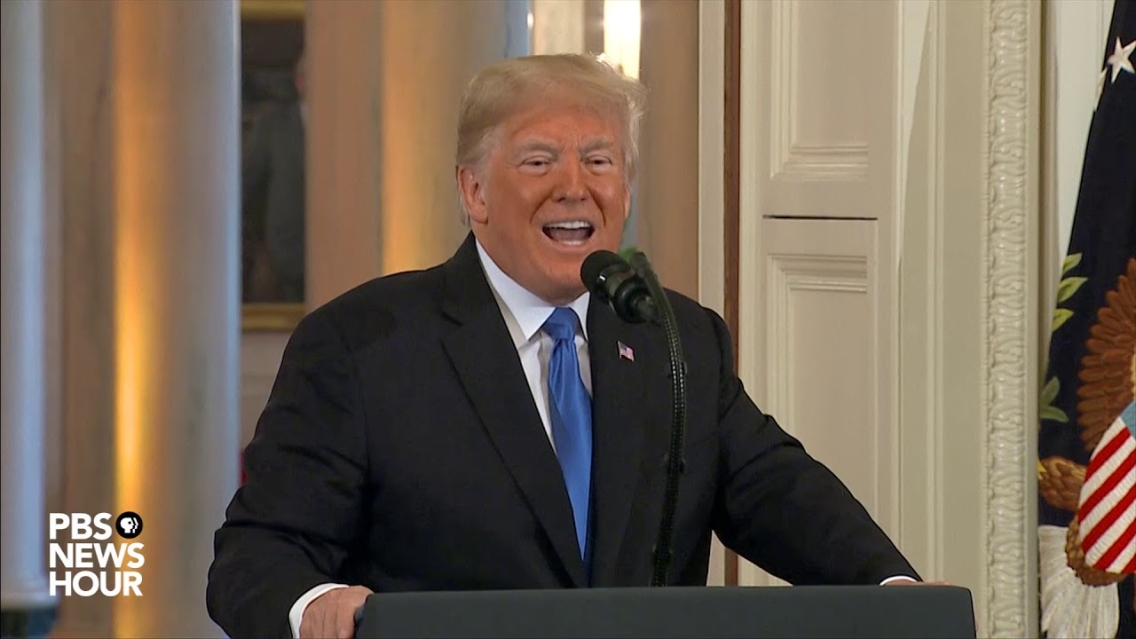PBS Reporter Yamiche Alcindor Searches for the Truth
MIDDLEBURY, Vt. – Yamiche Alcindor, the White House correspondent for PBS, delivered a concise, 30-minute address “My Journey through Journalism” to about 300 Middlebury students and community members in Mead Chapel on February 22 for the Robert W. van de Velde Jr. Memorial Lecture.
Alcindor said she was inspired to become a journalist after first learning about the death of Emmett Till, the 14-year-old boy who was murdered in Mississippi in 1955. “Emmett Till ended up being a catalyst for the 20th-century Civil Rights Movement,” she said, and after studying the facts surrounding his death and learning that his murderers had been acquitted of their crimes, Alcindor was determined to become a journalist.
At a conference for Black journalists a few years later, Alcindor met Gwen Ifill, the award-winning PBS reporter who died in 2016. Ifill shared some advice with Alcindor that still resonates with her today, she said.
After introducing herself to Ifill as “Yamiche, but you can call me Miche,” Ifill admonished the young reporter saying, “Don’t let people nickname you. Know who you are and let people figure out how to conform to you. Don’t make it easy for them and don’t change yourself. Don’t try and force yourself into this box or that box to make someone else feel comfortable around you.”
Alcindor, who joined PBS about two years after Ifill’s passing, has taken her mentor’s advice to heart. “This is a time in our history when you cannot back down [from who you are.] You have to stand up for whatever it is that you believe,” she urged the audience at Mead Chapel.
The 32-year-old guest speaker’s rise through the ranks of journalism has been nothing short of meteoric. While pursuing a bachelor’s degree at Georgetown, she interned at the Miami Herald, Seattle Times, and Washington Post. Her first fulltime job was reporting for Newsday on Long Island, N.Y., followed by a staff reporter’s post at USA Today where she covered the Sandy Hook shooting, the unrest in Ferguson, Mo., after the death of Michael Brown, and the protests in Baltimore after the 2015 death of Freddie Gray.
Born in the United States to parents who immigrated from Haiti, Alcindor joined the New York Times in late 2015 as a national political reporter covering the presidential campaigns of Bernie Sanders and Donald Trump. In January 2018, she was named White House correspondent for the PBS NewsHour, which was when she came to national attention.
The journalist was thrust into the spotlight the day after the mid-term elections in November 2018 when, at a White House press conference, she rose to her feet and asked President Donald J. Trump a question about his support for nationalism on the campaign trail “which some people saw as emboldening white nationalism.”
and said, “That’s such a racist question.” He claimed to have “high poll numbers” among African Americans, repeated his belief that her query was “racist,” angrily pointed his finger at Alcindor, and said her question was “insulting” and “terrible.”
“I tried to stay calm and stay focused in that moment on my purpose,” said Alcindor. “I was steadied by all the people that I ask questions for.” And although she says the clip makes her cringe a little when she watches it now, she understands “that what I am asking about” – i.e., Trump’s affinity for white nationalism – “are things that everyone wants to know about. We have to be in a place where we are continuously pushing this president on the facts… I am someone who really believes that if we are doing our role, then the politicians will feel a little bit uncomfortable and on edge because we are asking questions that are really going to make them think.”
Alcindor continued, “We are in this moment where we all have to figure out how to enjoy our journeys, which means that we all have to figure out that we are all on the way to something, and America is on its way to all sorts of places, but we also have to be accountable to each other. In my mind, I feel like the experiences I have had [with] people who challenge me and challenge the premise of my very existence, they are the people I want to ask questions to.”
The speaker again invoked the tragedy of Emmett Till and declared, “I’m going to write about civil rights. I am going to write about injustice. I am going to write about all the things that America is today.” She pledged to push the 2020 presidential candidates to tell us “what they really believe and give us the truth.”
She concluded her prepared remarks by saying, “I may be known now as the girl who Trump called ‘racist,’ and that’s okay in some ways, but it’s also understanding that I was doing exactly what I was trained to do in that moment. My question was based on many years of pounding the pavement, and knowing that those are the questions that need to be answered.”
Alcindor took questions from the audience for about three-quarters of an hour after her address, including questions about the field of Democratic candidates, about dealing with people who make her justify her existence, about the decline of local news coverage across the United States, and about the news media under attack by the president.
The annual Robert W. van de Velde Jr. ’75 Memorial Lectureship was established in 1981 by the van de Velde family and friends. It provides an annual talk on public affairs and journalism. Previous speakers include Bob Herbert and Rachel Donadio of the New York Times, David Wessel of the Wall Street Journal, Jonathan Alter of Newsweek, and Jane Lindholm of Vermont Public Radio.


